|
Authors don’t promo right now! It’s insensitive! I see this come down my timeline every time there is a major news event. But I gotta tell ya. I think telling authors not to promote is what’s insensitive. Let me break it down why authors shouldn’t be guilted into abandoning their promotional efforts when our timelines are a mess. 1) There’s been something dire happening with regularity for over a year now. 2016 was a dumpster fire. We all know it. I’ve never seen a society so eager to see the ass end of a year than I did last year. But hey, guess what? 2017 has been pretty rough too. Soooo... When are we supposed to fit our promo in? That one Wednesday in the middle of the month where it seems like it’s going to be quiet for a few hours? When there’s a steady stream of crap, sometimes authors just have to put on our boots, wade in, and let that crap flow around us as we hold up our virtual billboards. 2) We’re not psychic. And we don’t plan our promo with only thirty minutes lead notice. Once we finish a book we work out a promo plan, book blog tours, decide on cover reveal dates and when to share excerpts. We do all of that weeks in advance. Guess what happens if we just chuck it all to the side because the circus sideshow that is our country right now decides to put on another center ring act? No one knows about our book, which means no one buys our book, which means we don’t make any money. Not to mention, if we’ve already booked a tour somewhere, we can’t just call ‘em up and say, “Hey! Can you hold my posts please? The world’s gone to shit again and I want to wait until the skies are clear.” Nothing doing there, my friend. Blogs and other promo sites have their own schedules to keep. 3) It's unfair to pick and choose which events are worthy/shocking/painful enough for taking a day off from promo. What’s important and sad for one person, might not be as much of an issue for others. I was sitting at my day job desk when I heard Prince died. My co-worker was unbothered. I had to get up and go in the bathroom to cry. And those roles have been reversed or shared depending on who or what is happening. I won’t get into the attention given to Western events versus non-Western. But suffice it to say, every celebrity death, political event, and social disaster touches each of us differently. 4) You are literally telling authors not to go to work. Which makes no sense. Do TVs stop airing ads for clothes, beer or new trucks? No, those ads are booked and paid for in advance and they are played regardless of what’s going on in the world. McDonald’s doesn’t dim the light on the golden arches, Wal-Mart doesn’t shut their registers down (even though they probably only had two open) and Barnes & Noble doesn’t drape a cloth over all the books they have on display. Commerce continues. Besides, don’t you think it would be weird if authors started posting and telling other people to stay home from their jobs until the latest tragedy was over? 5) We are already awkward enough with promo. Shaming us for doing something that most of us don’t care for but is absolutely necessary for us to make any money just makes us feel even more awkward and uncomfortable. Why do you want to hurt me when I just want to bring you a good story? 6) Speaking of good stories. Sometimes we need that, ya know? On days where my timeline is filled with post after post and tweet after tweet of the latest atrocity, it’s nice to come by something that is off the subject of the moment. Whether it’s a puppy wearing a funny hat, a smoking hot person for me to drool over, or promo for a book that I can read to give me a break from watching the world burn, I want to see it. Call it self-care, call it guilty pleasure, call it whatever you want. The point is, looking at awfulness all day is mentally draining so allow us authors to brighten your day for a moment with a pretty book cover and a catchy blurb. So as you can see there are plenty of reasons to cut us authors some slack for doing promo when there’s yet another kerfluffle going on. Authors, I will say this. It’s important to read the room and maybe sometimes adjust the tone. Or even acknowledge that there is an issue happening and share your thoughts or sympathy. And obviously this post doesn’t apply if there is a MAJOR EVENT. I won’t give any examples because I don’t want to speak a tragedy into existence. But other than that, we gotta do work. Now, with all that being said, I have a .99 book sale! Bad Boys Need Love Too is on sale for .99 until this Sunday. You can also get Bad Boys Need Love Too: Nate and Bad Boys Need Love Too: Max, two novellas in the series for only $2.99 each. Authors, feel free to drop your promo in the comments!
Thanks for reading! Love, Christa Visit my website: www.ChristaTomlinson.com Follow me around the internet! Facebook, Twitter, Instagram, Goodreads, BookBub View my titles on Amazon Sign up for my Newsletter Bad Boys Need Love Too on sale for .99 at Amazon, B&N, Kobo and Apple AMAZON AMAZON UK AMAZON CA B&N.COM KOBO APPLE Amazon French Translation
0 Comments
Book pirates. No, these aren’t guys and gals in flowing, open-necked white shirts sailing the high seas with books tucked into their sashes instead of a cutlass. Book pirates are people who take copies of books and illegally upload them to be shared on the internet. Every few months, there’s a new internet explosion as authors find out about a site or group that is hosting their books for free and without their permission.
There are a couple of author schools of thought on book piracy. Some authors despise it, and go after every site they come across that has their book with a request that they be taken down. There are even services that authors can use that will do the work for them. Other authors feel that it’s not worth the hassle and pretend they don’t see the online sharing. For the people who host the pirate sites, they rationalize it as free publicity. They feel a reader would never have heard of an author if they didn’t see the pirated book and now that they’ve read it for free, they’ll go and buy it and an author’s back list if they like it. I’m not sure I buy this theory. I know people who have scads of free music on their musical playing devices. If that’s the case, why would they bother to buy music? I have a feeling the same holds true for pirated books. On the reader side, many feel that they should get free books because they can’t afford to buy them. On the one hand, I feel your pain. When you’re a voracious book worm, that $3.99 habit can add up fast. But on the other … if you were low on funds and you really, really wanted to see a movie you wouldn’t go into a theater to see it without paying. And if you did, you’d have to be sneaky and pray you didn’t get caught because you know you’re stealing. Same thing applies to books. It’s just easier to get away with the sneaking online because there aren’t any movie theater staff watching to make sure you came in the front door with a ticket. Unfortunately, books aren’t always valued as worthy of paying to read. Part of the problem is, many people don’t understand the labor and cost that goes into producing a book. Never fear, your Friendly Neighborhood Author is here to break that down. First, let’s cover the labor. Let’s say an author has a 60,000 word book and they write at a rate of 500 words per hour. If we give that author minimum wage for their labor, they would make $870. But wait, they also have to edit the book. If they do it in two weeks working the typical eight-hour work day, that’s $580 in wages. A week of rewrites would net $290 and three days of proofing earns $174. That’s $1,194 that the author needs to recoup in book sales in order to pay themselves. (I’m over simplifying this to umm… keep it simple. Also, complicated math makes me itch) After the book is written, come the costs that a self-pubbed author has to pay out of pocket. First, the editor. That’s probably going to be about $600. For a book to be taken seriously, a professional cover design and a few graphics to advertise the book are necessary. Lowball price for that is $300. If an author isn’t tech savvy and can’t do the book formatting on their own, they’ll have to hire someone. That’s $150. A promotional book blog tour is helpful to get the word out, so we’ll need to add another $150. Ads on relevant sites? That’ll be about $70 each. Now if we add all that up to the author’s wages and carry the one, it comes out to about $3,384.00. So! As you can see it is not free for authors to produce a book. Yes, the final uploading to Amazon, Barnes and Noble, Kobo, etc. is free, but before we get to that point we’ve already shelled out a few buckaroos. And authors need sales in order to cover those costs and hopefully make a little profit. Okay, so maybe after reading this, people might feel a little bad for taking free books, but still aren’t able to pay for them. Well, my friend, don’t despair! I’ve got a Top Ten List of Ways You Can Get Free Books. Wait, no. I couldn’t think of ten things. I’ve got a Top Eight List of Ways You Can Get Free Books! 1) Become a reviewer! There are sites like The Romance Reviews, Romance Studio and blogs like Two Chicks With Books & Eye Candy that are often looking for reviewers. You get a free book, and in exchange you’re required to write a book report. It doesn’t have to be as in-depth as a New York Times review. Just state what you liked and/or didn’t like about the book and try to keep it spoiler-free. 2) Join an author’s ARC group! Most authors have opportunities for a core group of fans to get a copy of their latest in advance of release. In exchange, they ask you to post a review to sites like Goodreads, Amazon, Barnes & Noble, etc. 3) Swing by Goodreads and sign up for book giveaways. I have lots of books on my Goodreads TBR list. Whenever there is a giveaway for one, Goodreads sends me a little notification. I sign up, and one day I’m going to win! 4) Shoot on over to Library Thing and do the same thing. Library thing is a little harder to navigate. But they do allow ebook giveaways, so that makes it easier for authors to give away more copies of their book babies. 5) Join a genre ARC group. In these groups, authors come in, state what their book is about and how many they’re giving away. If you’re selected, you get a free book and in exchange you write and post a review on Goodreads, Amazon, Barnes & Noble, etc. 6) Volunteer as a beta reader. Lots of authors periodically call for beta readers to help them out. What does a beta reader do? They read for the author, giving them their perspective on the book as a fan of the genre. Their role is not to be an editor, but to let the author know what did and didn’t work for them about the story. Some authors just ask for a read and general feedback. Others (*cough* me *cough*) have handy-dandy sheets that break down the things they’re looking for feedback on. 7) Go to the library. I know what you’re thinking. A lot of self-published books aren’t available through library systems. But some are. And if they aren’t there, you know what would be cool? Asking the library to carry them. If librarians know there’s an interest in a genre and/or author they might make more of an effort to get those books. I know I was ecstatic when I saw that Alexis Hall’s ebooks were available through the Harris County Public Library system. 8) Join Facebook groups, Like authors’ pages, and sign up for their newsletters. These are the ways that authors usually reach out in order to give away free books. It works both as a way to build some buzz, and to say thanks to those who have become our fans. All of those methods require a little effort on the reader’s part. But in exchange you’re getting that free book. That seems more than fair. It’s a win-win for author and reader. Reader gets the free book, author gets another review which is helpful for sales. For me, I don’t agree with book piracy. I’m the nerd who buys all her music from Google Play and pays to rent movies on VUDU. But, I don’t go after book pirates either. Unless it’s a huge and blatant site – then yes, I’m sending a take down notice. I want everyone to be able to read the stories that they love, but I also want authors to receive payment for their labor. In closing, I shall put my books where my mouth is. Or however that saying goes. Go to my Giveaways Page and enter to win a copy of my latest, An Officer’s Submission. Yay! Free books! Also, feel free to share this post. And if you have additional and LEGAL ways to get free books, please add them in the comments. Thanks for reading! Love, Christa Visit my website: www.ChristaTomlinson.com Follow me around the internet! Facebook, Twitter, Instagram, Goodreads, BookBub View my titles on Amazon Sign up for my Newsletter Book IV of the Cuffs, Collars and Love series is now available. Amazon - Amazon UK Hello and Happy Sunday! If you’re anywhere in the US, I’m sure you’re dealing with some chilly weather. I’m in Houston and it’s a rare cold day in March. I’m not pleased, I prefer it when it’s warm. Okay, enough about the weather. I wanted to do a small post on book series today. I thought it appropriate since I’m about to publish book 4 in a series (and the nerves are starting to hit!) and because the Romance Writers Chat Topic this week is book series. If you’re on Twitter, follow @RWChat and the #RWChat hashtag Sundays at 6 pm CST. It’s a lot of fun, you’ll get great tips and connect with other writers. First things first. Series. Why do readers like them? I can’t speak for all readers, but for me, I love them because I enjoy getting to be in a world for more than one book. It’s nice to finish a story and know that I get to revisit characters and further explore settings in following books. Some series focus on one couple, like Kate Aaron’s Free Men, while others stay in the same world but tell the stories of different couples. I like both formats. Annabeth Albert’s Perfect Harmony series is one that I enjoyed that has different couples in each book. As a writer, they’re great for several reasons. First, when we come up with story ideas we often end up with ideas for secondary characters. Writing additional books in the series gives us a chance to set all those ideas free. Sometimes we have a secondary character that gets really loud in our head, or one that needs to be redeemed, like Ryan in The Detective’s Pleasure, and they won’t shut it until they get their own book. Another reason writers love series is because it can be easier for us to write them. We already know the world and have some background on the characters, so the research and creation part can go a little faster. And of course, writers love series because we already have a built-in audience. If a reader enjoys book one in the series, she’s probably going to want to come back for books two and beyond. There is some danger in that however. I’ve experienced series fatigue with a couple of authors. It gets to the point where I’m just ready to move on and try something new. Or in series where there is an overarching series plot, it can take too long for the author to get to the point. I’ve had to tap out on a couple of series like this. I do love series where the author gets in, writes four or five amazing books, then gets out, leaving me with nothing but good thoughts for the world they created. Writing series can definitely be awesome for authors. So if you’re thinking of writing a series, or you’re smackdab in the middle of one, here are a few tips for you. 1. Start a series bible. Do this immediately. Do not pass Go and do not move on to the second book without a series bible. Record character’s names, physical descriptions and backgrounds. This is super helpful. You’ll think you remembered correctly that Mike has brown eyes, only to get an email from a reader asking what happened to his gray eyes. Record those facts, a summary of each book and other important details so that you can easily find them. You can create an Excel spreadsheet, a table in Word or go old school and have a binder full of info like me. 2. Have book covers that relate to each other. Your book covers don’t have to be identical. But they should definitely be similar. So if book one is painted art with a purple and gold background with a red dragon on the front, book two shouldn’t be slick black and white photography of a guy in jeans. Try to stick with a similar theme, style or color scheme. It will help your readers identify the books, and they’ll look super pretty when they’re all lined up together. Kate Aaron’s Free Men series has lovely coordinating covers. 3. Have the same general tone to each story in the series. Every couple is different and has a different story to tell. But if books one through three are about happy-go-lucky couples who fall in love after a meet cute, book four shouldn’t be a tragic love story where h and h are reunited after one goes to prison for ten years. That switch is jarring for the reader, and they’ll wonder what the heck happened to their beloved bubbly couples. 4. Don’t let characters take over stories that aren’t theirs. Readers want couples and characters from book one to make cameos in book two, etc. It’s like saying hi to old friends. But when a new book in the series becomes more about the characters from previous stories, it’s a problem. Some characters are loud and full of life on the page. It’s the writer’s responsibility to keep ahold of them and make sure they don’t steal page time from characters who are trying to find their own love story. 5. Know when to cut bait. There will come a time when you have to let a series go. Maybe you’re burned out on that world. If you are and don’t have any fresh ideas to share, let it go. Readers will pick up on it if you’re phoning it in. Or, maybe the readers just aren’t there for a series anymore. If you notice sales and readers for a series have dwindled to nothing, put that baby to bed. There’s not much sense spending the time, money and effort on something that you won’t see a return on. You can always revisit it later if interest is renewed. There’s lots more information out there on writing series. If you have any tips or thoughts to share, feel free to post them in the comments. I’d love to know what both readers and writers think about book series.
This is me when I see a good review for one of my books: This is me when I see a bad review for one of my books: Authors react in many different ways when they receive a bad review. A lot of times, those reactions lead to a bad reputation for that writer. Some even end up on the Authors Behaving Badly list. As I always say, I'm not an expert, but I want to help other emerging authors get their career off to a good start. With that in mind, here are three things NOT to do when you get a bad review: 1) Contact the reviewer to explain something about the book that you think they misunderstood. 2) Contact the reviewer to bitch at them because you don’t like what they wrote. 3) Contact the reviewer to ask them to take the review down. Basically, DON’T CONTACT THE REVIEWER. Don’t even look at them. And for book god’s sake, don’t track them down and attack them with a wine bottle. Yes, that happened. Do not argue with the reviewer in any way. No matter how nasty the things were that they wrote about you, your book, your dog and your grandma, you’ll be the one to come out looking like the unprofessional monster that no one wants to deal with. Once you put your book out there, people are entitled to their opinion about it. And nothing you can say to them is going to change that opinion. Also, don’t try to be slick and send your fans, friends or family after someone either. You know what I mean, the sly post where you say, Sally Reviewer was so mean to me but I’m not going to sink to her level. But here’s the link if you want to see it. And all her social media handles for good measure. And her email address. And her blood type. Then your fan/friend/family member says, I’ll give them a piece of my mind! So they attack Sally Reviewer, then a bunch more people attack Sally Reviewer. Meanwhile, you’re sitting there with dirt free hands, playing the tragic victimized author role, and only after it gets truly nasty do you maybe think about calling off your rabid horde. This is gross. Don’t do this. Be professional. So what can you do about negative reviews? 1) Cry 2) Go in your closet and scream with rage 3) Eat ice cream 4) Play Mortal Kombat and pretend it’s the reviewer’s ass you’re kicking 5) Call your mom (or other lovingly sympathetic family member or friend) and complain 6) Buy yourself something pretty for some retail therapy 7) Take that pissed off fire and write another book Now, I’m not saying I’ve used any of the above methods (I’ve totally used all of the above methods). But they are helpful. Get your hurt feelings out in private and then move on. You can also just avoid reading your negative reviews. In my opinion, this is the review scale for sites like Goodreads and Amazon and how I think you should read them:
5 Stars – Oh my gawd, this book was the best! Top ten for my whole life! Read these, but sparingly. Save ‘em for when you’re having a shit day writing and need a confidence boost. 4 Stars – This book was amazing! Definitely going on my reread pile Read these and bask. You did good work. 3 Stars – This was a good book, but it had some issues. Read these. They usually have legitimate critique that you can learn from to improve your craft. 2 Stars – This book was awful. But I did like the dog. You should probably skip these. They’ll just make you sad. 1 Star – This book was the dirt worst! Somebody take this so-called author’s keyboard away so she can never write again! And for good measure, cut off her hands!!!! *heavy breathing through the keyboard* Don’t read these. They more than likely didn’t offer any helpful feedback and they will piss you off. I know what you're thinking. Why is this important? And, I have the right to express my feelings just the way that reviewer did. But look at it this way. You, the writer, are a business. You might be a one woman/man show, but you are still a business. It is up to you to protect your reputation. Imagine if Target, Dunkin Donuts, or Nine West went off on rants every time they had a customer give their products a negative review. You'd probably be turned off and not want to shop there anymore, right? Same goes for readers. Your core group of fans might not mind your review rage. But readers who are out there on the fringes might feel differently. They'll take a look at that unprofessional rant about a reviewer and decide they don't want to support an author who attacks readers. After all, who's to say you won't attack them if they don't give you a glowing review? And just like that, that reader has decided not to support you with their book dollars. So ask yourself, is it worth it losing potential fans by internet screaming over a bad review? In my opinion, it's not. Reviews are tough. You need them, they can make you feel good, but they can also hurt something fierce. If you're going to be a writer, you'll need to learn to accept reviews graciously and find a closet to scream in when you can't. Thanks for reading! Christa www.ChristaTomlinson.com Follow me around the internet! Facebook, Twitter, Instagram, Goodreads View my titles on Amazon
Before you can get to editing, you have to get your first draft out. I call this the vomit draft. Why? Because when I’m writing a first draft, I don’t stop to do paragraphs or even punctuate. I leave sentences half-finished if I can’t immediately decide what I want to say because I don’t want to break my flow. And I definitely don’t stop to look anything up. If I’m unsure of a fact or need a character name, I just type XX as a place holder. (I learned this tip from another writer, but I can’t remember who. Thank you, smart writer!) It’s easy to find with Word search features because there are few (maybe none?) words that have XX in them, which means you won’t get a lot of unnecessary results. When I’m finished vomiting on to the page (yuck!) I take a break and get away from it for a while. **Side Note! Should you edit while writing? I don’t recommend it. Writing and editing are two different brain processes. And if you stop your writing to edit, it will take you forever to actually get the completed story out because you keep nitpicking over little bits. Let your brain tell the story. Then go back and whip it into shape.
Once I’m finished with a few rounds of self-editing, I have the For Your Eyes Only draft. At this point, I’m ready to send it off to someone else to read. That can be one of two persons, a beta reader and/or an editor. I’ll break and explain what each one is and does. Beta Readers. They are precious cinnamon rolls of perfection. These are people who already read your genre that you can give your manuscript to for reader feedback. Why is it important for them to be fans of your chosen genre? Because they have an innate ability to know what to look for as far as what they’ve already seen and enjoyed or hated in similar books. With that knowledge, they can tell you if you’re in the ball park or way off in a park of your own. Their job is to tell you things like did I enjoy this book? Are the characters likeable? Were there any parts I didn’t like? Their job is not to edit your work as far as grammar, sentence structure, spelling, time line, etc. Editors. These are the folks with the red pens. It is their job to find grammar mistakes and work with you on sentence structure. They address plot holes, eliminate passive voice, point out time line mistakes, etc. It is not their job to fix or re-write your book, which is why you don’t give them a first draft. The editor only receives a book after you’ve made it the best you can make it. They can turn silk into a purse, but they can’t do the same with that pig’s ear of a first draft, you know what I’m saying? I’m going to detour for a moment here to address a debate that I see often and have been a part of. The Do I need an editor? debate. (This is for self-published authors. If you’re with a publishing house, you will be assigned an editor.) In my opinion: yes, you do. You shouldn’t take a story that only your own beautiful eyes have looked at and send it out into the ether. Just like people can’t see if they have an ugly baby (even though all babies are beautiful!) you can’t see if your book baby is ugly. But. If you’re self-publishing, it can be difficult to find an editor. Or, maybe hiring an editor isn’t financially feasible for you. If that's the case, there are other options. 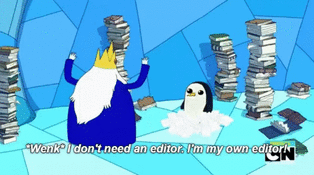 Don't be this cartoon guy. Don't be this cartoon guy. Remember those super-duper lovely beta readers? Some of them actually do edit. You can also work with people like English teachers or majors, or even try a swap with another author. Will your results be as good as working with an actual trained editor? Nine times out of ten, the answer there will be no. It’s a risk you take. But again, the point is other eyes besides your own (and your loving mother’s) must take a look at your story. Finally, the day will come when you get the email that your beta and/or editor has sent with your document corrections and suggestions. After taking a day to work up the nerve to open that email, you start reading through the edits. Do you have to take all of the suggestions? No. But this is where it’s important not to get Writer’s Big Head. Your first reaction to suggestions may be, “What do you mean you don’t like that I gave the hero purple arms? That’s who he is as a purple armed man!” It can be hard to change something that you birthed in your brain. But take a second and think about it. If multiple readers don’t like, or are squicked by something in your story, that may be an indicator that it needs to be changed. If your editor tells you that you spent too much time getting from plot point A to plot point Z, or worse, got to point Z with very little explanation how, that might be something you need to address. The betas and editors are there to enhance your story, not tear it apart or make it their own. (If you get a meany-faced beta/editor who does want to rip up your story, run away) Alright, you’ve made the suggested changes so that means your book is ready to go. Haha! J/k. Now it needs to be proofread. This is where someone goes over the manuscript with laser eyes to look for incorrect names/words, missing punctuation and other tiny errors.
Having someone else do the proofreading is the best option. But if that isn’t an option for you, here’s a little trick. Change up the format you’re reading the document in. If you’ve been working in 12 pt Times New Roman Black, change the font to 16 pt Courier Purple. Even better, save it and read it as a PDF. Even triple better, make an e-book version of it (you can do this in Calibre) and read it that way. The change in the way the WIP is formatted will help you slow down and catch errors, rather than speeding over the words because your eye is so used to the way they look. Okay, now you’re ready to upload that manuscript for sale. Whew, that was a lot of work! And crazy enough, even after all that you still might have an error or two. That’s okay. We’re not book writing robots and readers are generally kind enough to understand that we aren’t. Thank you, readers! So, that’s editing! Friendly reminder that I’m not an expert and I’m just sharing the knowledge I’ve gained so far. If you’d like more knowledge, check out Grammar Girl’s Quick and Dirty Tips for Better Writing and Write and Revise for Publication. And if you have any questions, feel free to let me know in the comments. Thanks for reading! Christa www.ChristaTomlinson.com Follow me around the internet! Facebook, Twitter, Instagram, Goodreads View my titles on Amazon |
Christa's Blog
My rambling and not at all edited thoughts on romance novels, writing, and pop culture. Tags
All
|
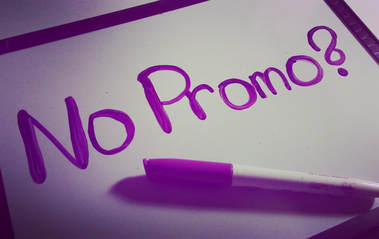
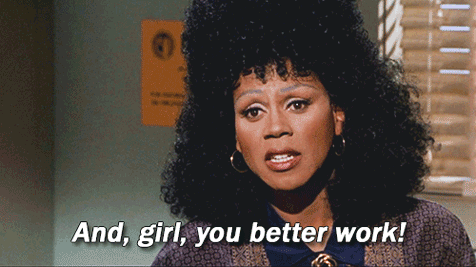
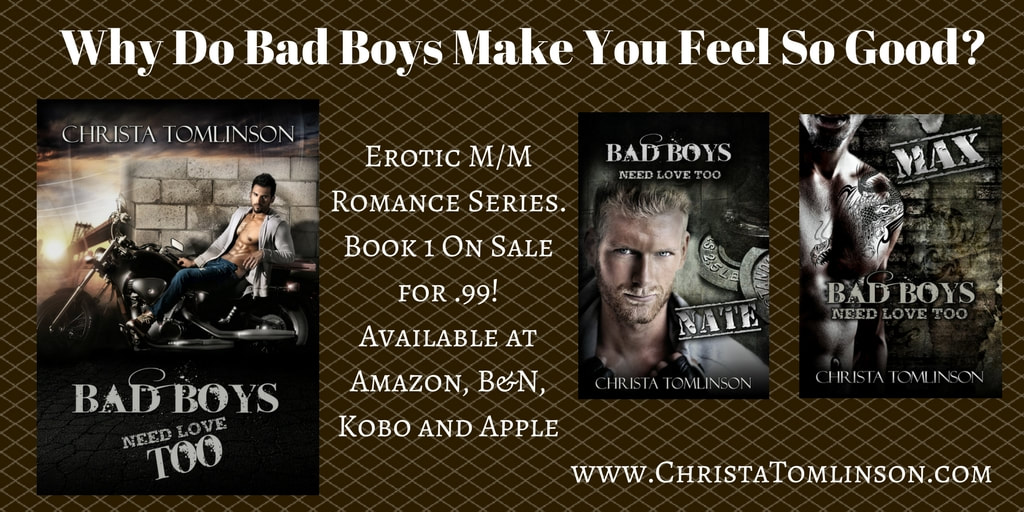
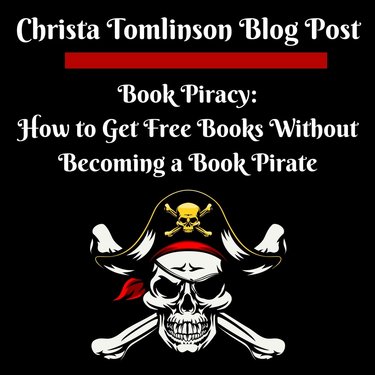
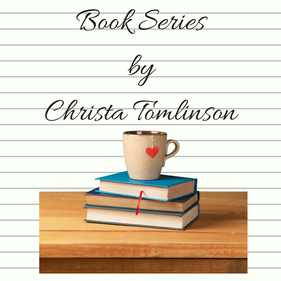

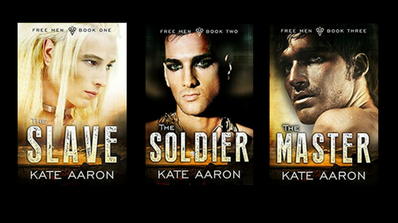
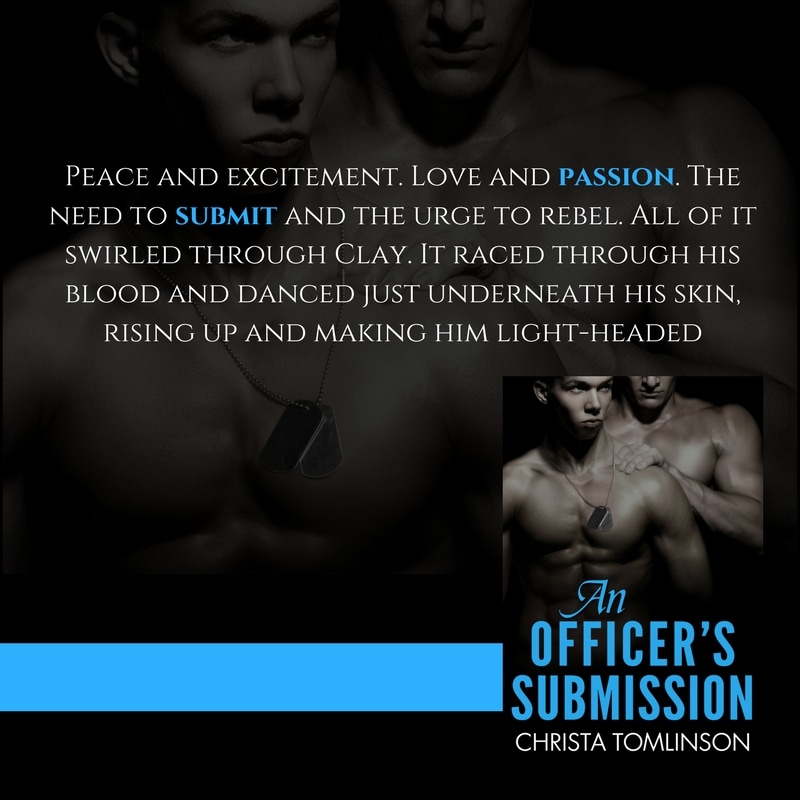
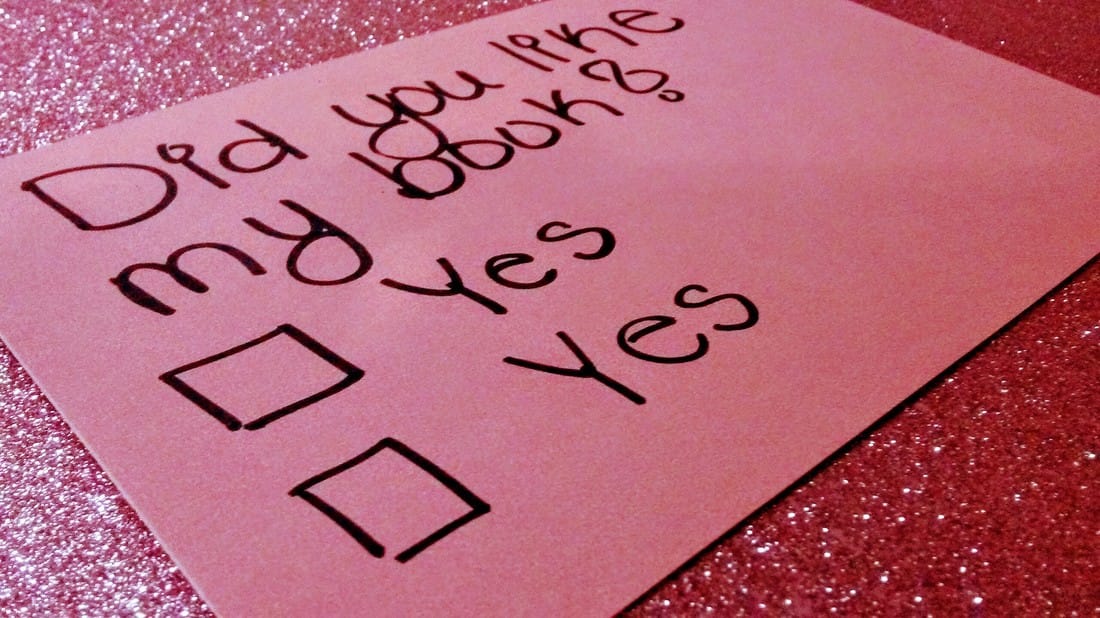

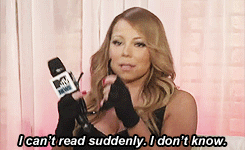
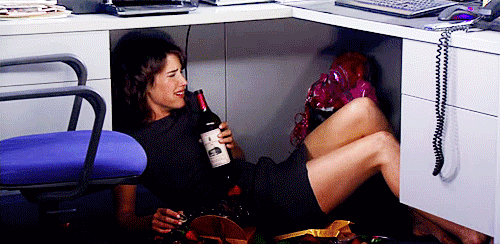
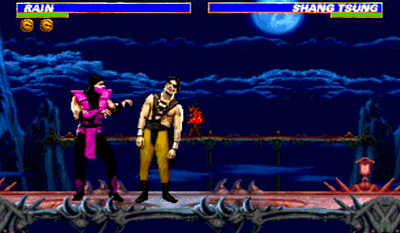
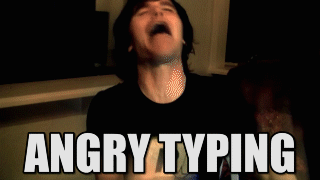
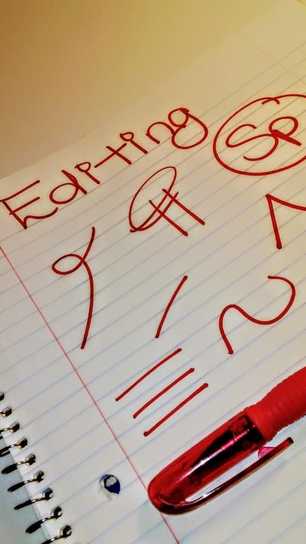

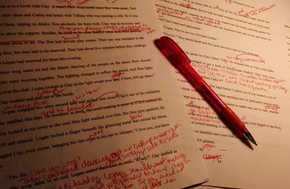
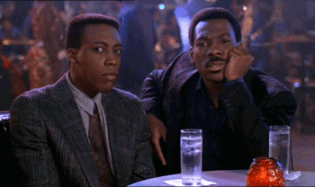

 RSS Feed
RSS Feed
